Family leave hangs in the balance as Democrats scramble to close social spending deal
Federal paid family leave is "likely" out of the Biden's social spending bill.
Democrats on Wednesday scrambled to close the deal on President Joe Biden's landmark social spending legislation, focusing on new ways to pay for the package, including a billionaires tax the White House said the president supports.
At the same time, they were hoping to make enough progress that House progressives would agree to vote for a separate Senate-passed bipartisan infrastructure bill before Biden heads overseas Thursday.
But as they struggle with how to pay for the package, some are frustrated with what's being cut from it.
Federal paid family and medical leave is "likely" out of the "Build Back Better" social spending bill, two sources tell ABC News, a major blow to some progressives who have fought hard for this provision, after Sen. Joe Manchin, D-W.Va., once again, refused a deal.
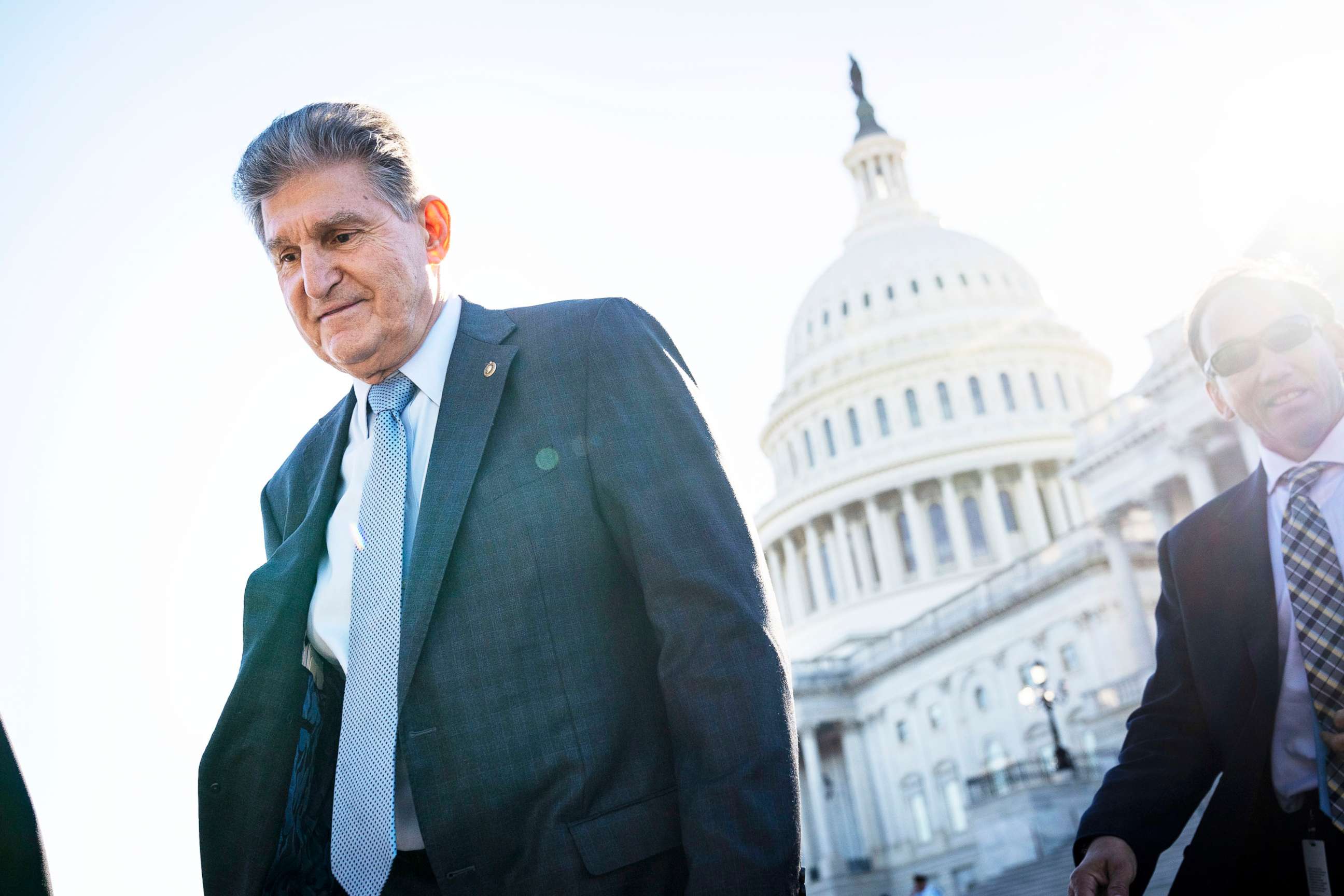
Progressives late Thursday decried to reporters the potential of paid family and medical leave being cut from the final social spending bill.
"I'm not comfortable voting on the bipartisan bill," Rep. Jamaal Bowman, D-N.Y., told ABC News. "I need to see a very, very, very, very, very strong framework with strong assurances from the president to even consider it."
"I'm really pissed off that paid leave seems to be falling from the wayside," he added.
Fellow progressive Rep. Cori Bush, D-Mo., said cutting paid family leave is "unjust to the people" and said that they had already compromised to reduce paid family leave to four weeks which, she said, is still "not enough."
ABC News Congressional Correspondent Rachel Scott squarely asked Congressional Progressive Caucus Chair Rep. Pramila Jayapal, D-Wash., if a deal is within reach.
"Well, I would ask the two senators that we're waiting on because we've all been working very hard to get there," she said, referring to Manchin and Sen. Kyrsten Sinema, D-Ariz.
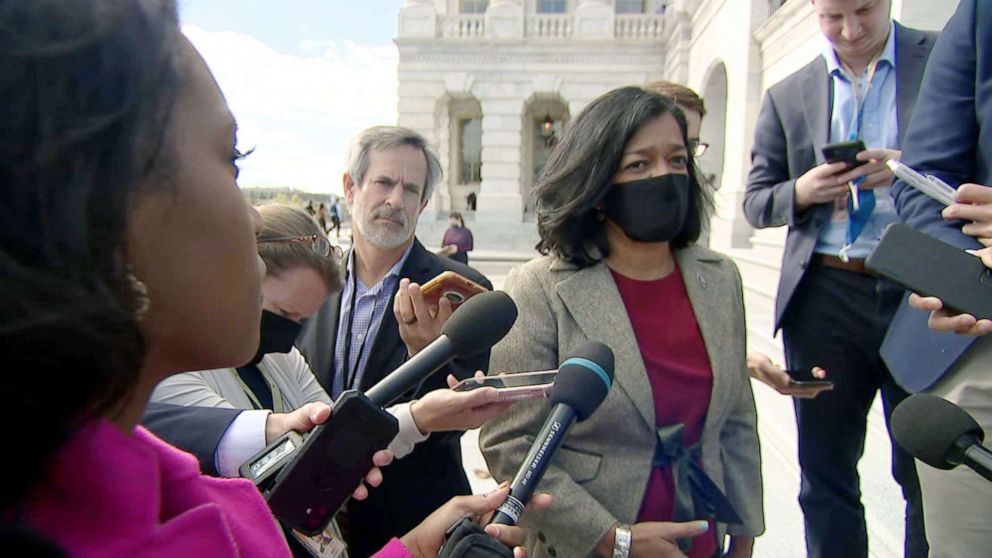
Asked what kind of message it would send to world leaders if the president shows up for his international climate summit without a deal, Jayapal replied, "Well -- let me be clear -- the fact we don't have a deal is not because of progressives."
"The fact we don't have a deal is because there are two senators who disagree on different parts of the bill and we understand we need both of them," she added.
Sen. Kirsten Gillibrand, D-N.Y., who fought to preserve paid family and medical leave -- offering to scale back the plan and remove the sick leave portion, told reporters it would be a "devastating" loss for the package.
The White House can only afford to lose three Democratic votes in the House and none in the Senate to pass its sweeping infrastructure goals.
"We are not going to let one man tell millions of women in this country that they can't have paid leave," said Sen. Patty Murray, D-Wash.
Late Wednesday, Manchin confirmed he was reconsidering his opposition after speaking with Gillibrand and Murray at length, but he told reporters that, at this point, handling a change of this magnitude inside the mammoth spending bill moving under filibuster-proof budget rules may not be the best way to do it.
It's not the only plan Manchin is taking issue with.
Just hours after Senate Democrats on Wednesday morning unveiled the billionaires tax -- to tax the wealth of a few hundred of the wealthiest of Americans -- the gambit came into question when Manchin raised concerns.
"I'm supporting, basically, that everyone should pay their fair share," Manchin told reporters on Capitol Hill. "I don't like the connotation that we're targeting different people."
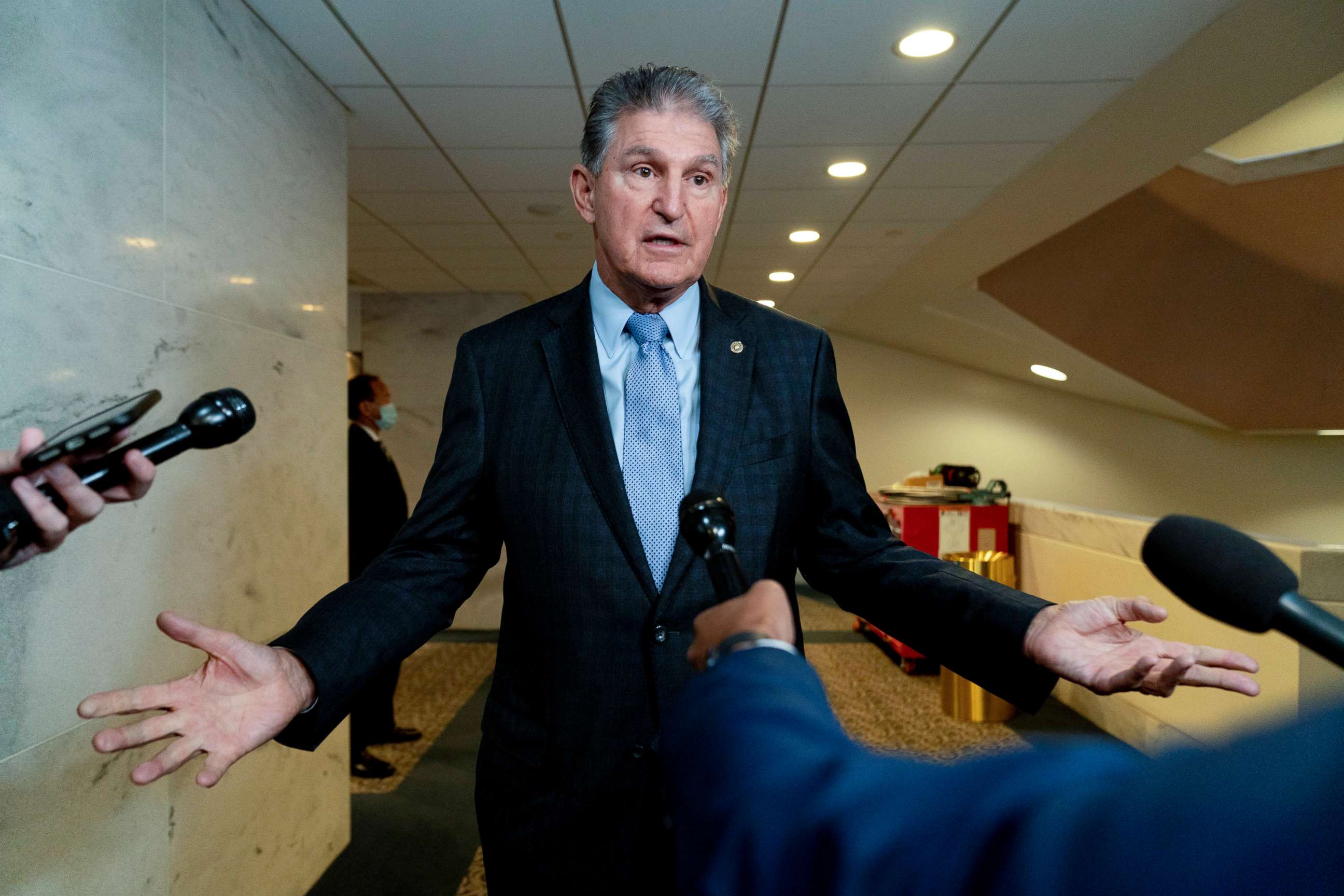
When asked about the plan proposed by Sen. Ron Wyden, D-Ore., which would help pay the $1.5 -2 trillion cost of sweeping new programs including child care, child tax credits, family leave and environmental initiatives, Manchin hesitated, saying while he thought they would "absolutely" get to a deal "the Senate will take time."
"There's a lot going on with that and it's very convoluted. I believe there's going to be everyone's going to pay. I believe that we will end up where everyone must participate," he said.
Wyden's plan would apply to people with at least $1 billion in assets or $100 million in income for three consecutive years, applies to increased value on assets -- so-called "unrealized gains" not now subject to tax -- and would impact roughly 700 taxpayers, according to experts. White House press secretary Jen Psaki announced at Wednesday's briefing that the plan has Biden's support.
But the option raises some constitutional concerns and could depend ultimately on the Supreme Court's interpretation of a wealth tax as a direct tax on property, which is unconstitutional, or whether it's another form of income tax, which is constitutional. Legal challenges also risk undermining the president's promise that his plans would be completely paid for.
"We're not going to support anything we don't think it's legal," Psaki said. "But I will tell you, the president supports the billionaire tax. He looks forward to working with Congress and chairman Wyden to make sure the highest-income Americans pay their fair share," he said.
Aside from the billionaires' tax plan, Manchin said he and his fellow Democrats are on board with another proposal to help pay for the sweeping programs: a 15% minimum tax on the country's wealthiest companies.
"We've all agreed on a 15% corporate tax," he said."There's a patriotic duty that you should be paying something to this great country to give you the protection and the support and the opportunities. That's called a patriotic tax. It will be nothing that should be scorned about."
Wyden, Sen. Elizabeth Warren, D-Mass., and Sen. Angus King, I-Maine, introduced the plan to establish a 15% minimum corporate minimum tax rate that's aimed at companies making more than $1 billion in profits annually. They estimate the plan would apply to 200 companies generating "hundreds of billions in revenue over ten years," according to a statement form the senators.
Warren pointed to Sinema in promoting the plan as negotiations continued on Capitol Hill, telling reporters they scrapped the idea of raising individual tax rates on the rich because, she said, those people do avoid taxes anyway.
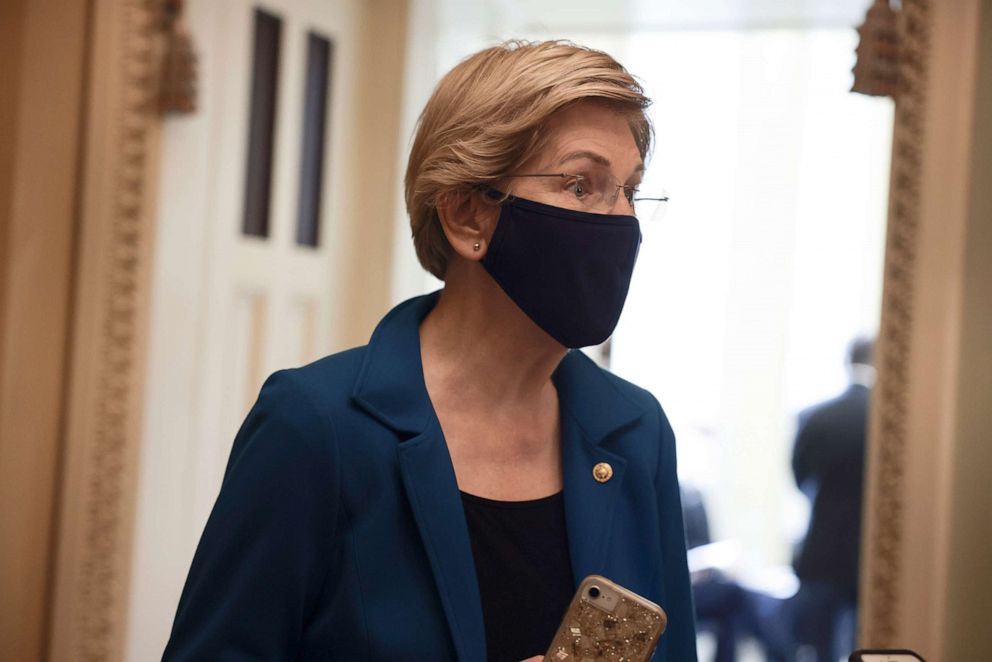
"They have now opened that hole to the point that billionaires drive semis through it loaded with money," Warren said of the current tax system.
The corporate tax proposal, and the separate tax on billionaires, are aimed at that tax avoidance -- what lawmakers said was the concern of Sinema, who with Manchin, has been a Democratic holdout.
"The idea here is to say, 'Enough, enough. If you're a corporation that makes more than $100 billion dollars in profits -- not revenues, not assets -- but profits, then you're going to pay a minimum 15% tax," Warren told reporters.
"It's not a new tax idea. The taxes are actually already there," she added. "We're now saying,"We want you to -- you've got to -- make this on an annual basis instead of putting it off for 30 or 40 years."
As the clock also ticked on Biden's overseas trip and White House senior staff aimed last-minute lobbying at lawmakers, Psaki said Wednesday the president also "remains open to going to the Hill."
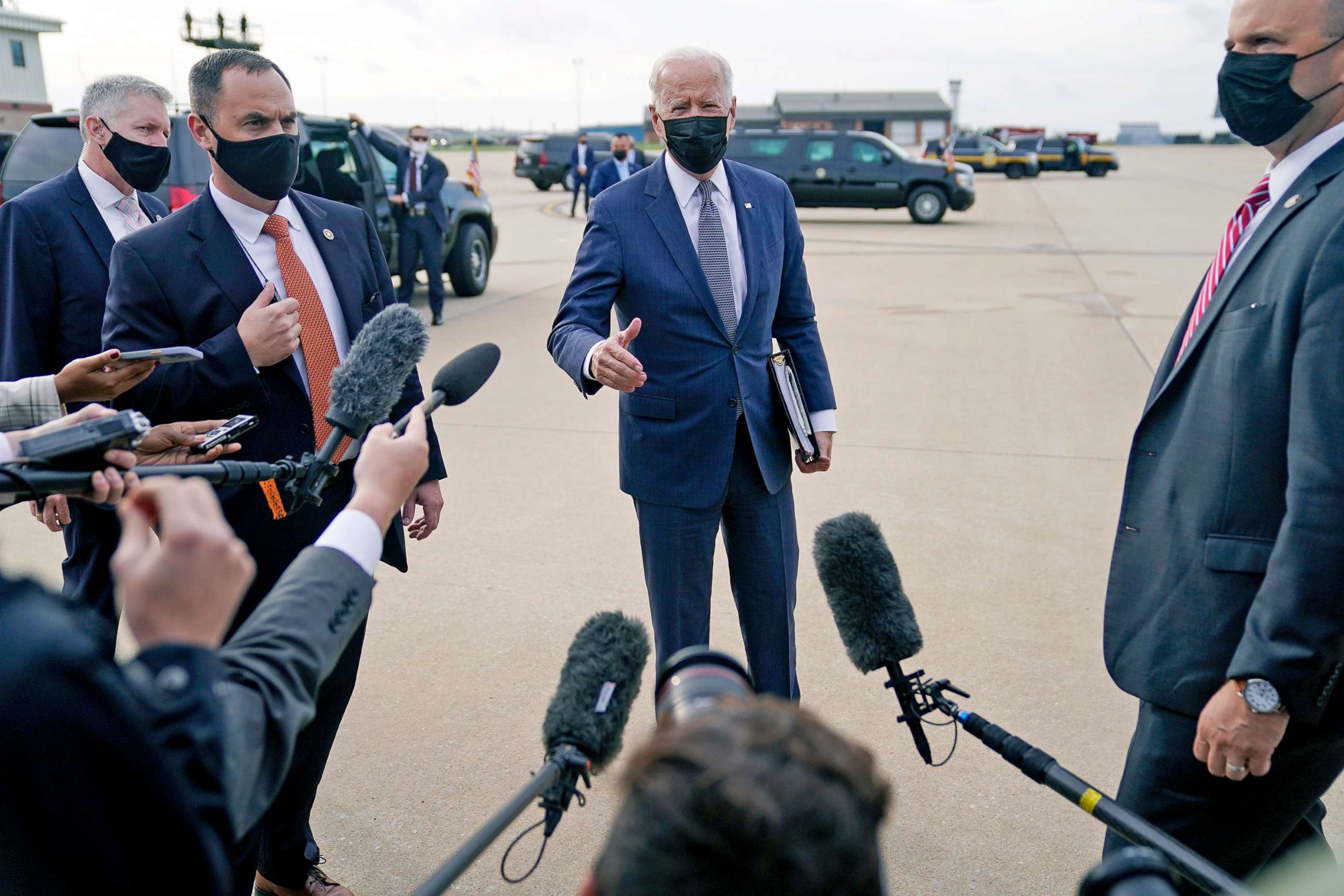
But she also signaled that if there isn't a vote this week, the White House wouldn't accept it as a loss.
"We're on the verge of getting to a deal," she said of negotiations. "They don't look at it through the prism of whether there is a vote in one [sic] legislative body before he gets on an airplane," she said.
Biden summoned Manchin and Sinema to the White House Tuesday night, but Democrats appear still at odds over key issues on expansion Medicare, Medicaid and family leave.
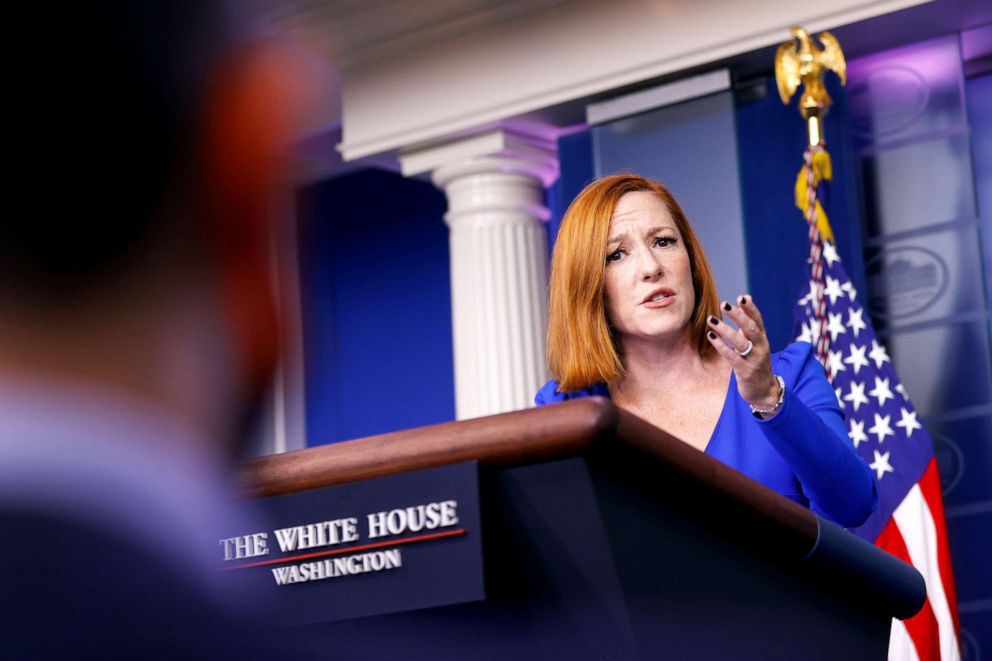
Despite some progressives' objections, an optimistic-sounding House Speaker Nancy Pelosi signaled the House could act on the "BIF" -- the bipartisan infrastructure framework bill -- sooner rather than later, with the thinking the chamber can and should vote on BIF with a framework in hand.
"In order for the BIF to pass, we need to have the trust, the confidence and the reality of the Build Back Better bill," Pelosi told House Democrats in a closed-door meeting, a source familiar told ABC News.
Notably, Pelosi has said she doesn't bring bills to the floor for a vote if she knows they are going to lose.
"In the next couple of hours, I will be communicating with you on our path from here to there … depending on what happens at the White House," she said. "That will determine our timetable, our course of action, but we are in pretty good shape."
Coming out of a meeting later, Pelosi told reporters that Democrats are in "pretty good shape" on the social spending bill.
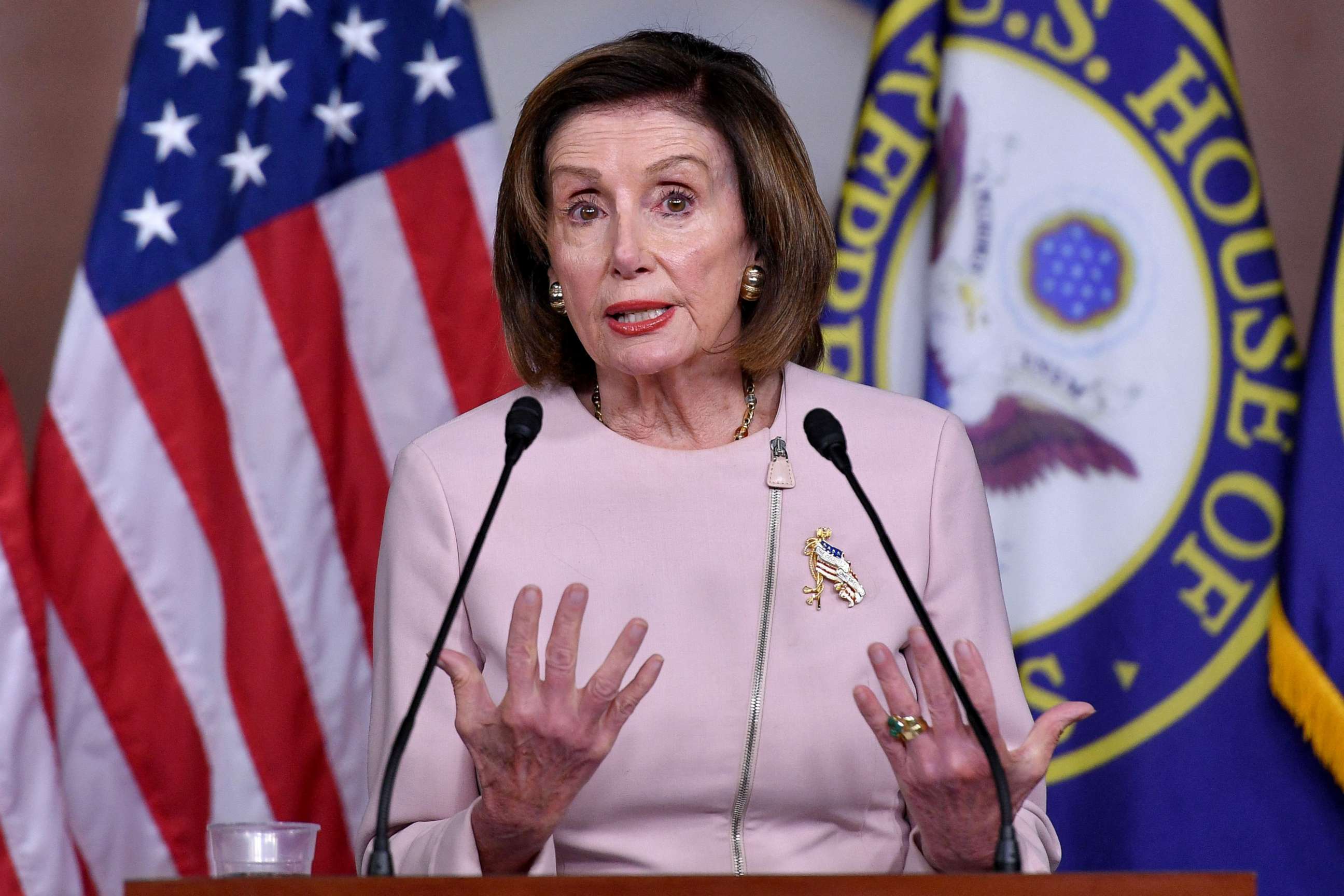
"We have to just make decisions about one thing or another," Pelosi said, heaping praise on Biden for leading the charge. "I feel pretty good about it."
Pelosi notified members in a new dear colleague letter Wednesday afternoon that the House Rules Committee will hold a hearing on Thursday on the Build Back Better Act.
The hearing does not mean the bill is ready to hit the floor, as negotiations continue, but it will offer committee leaders a chance to speak to members about the bill. She wrote that progress had been made on a few sticking points, including closing the Medicaid coverage gap, but they're still working to close a deal on paid family and medical leave.
Meanwhile, a disgruntled Sen. Bernie Sanders told reporters he didn't see a deal by the end of the day Wednesday.
"I don't know, but I don't think so. I'm not quite clear in terms of the revenue package. Every sensible revenue option seems to be destroyed," Sanders said.
Members of the Congressional Black Caucus said last week at a press conference they are also ready to vote "soon" on the legislation that chair Joyce Beatty, D-Ohio, said members have not been on the sidelines for when it comes to negotiations.
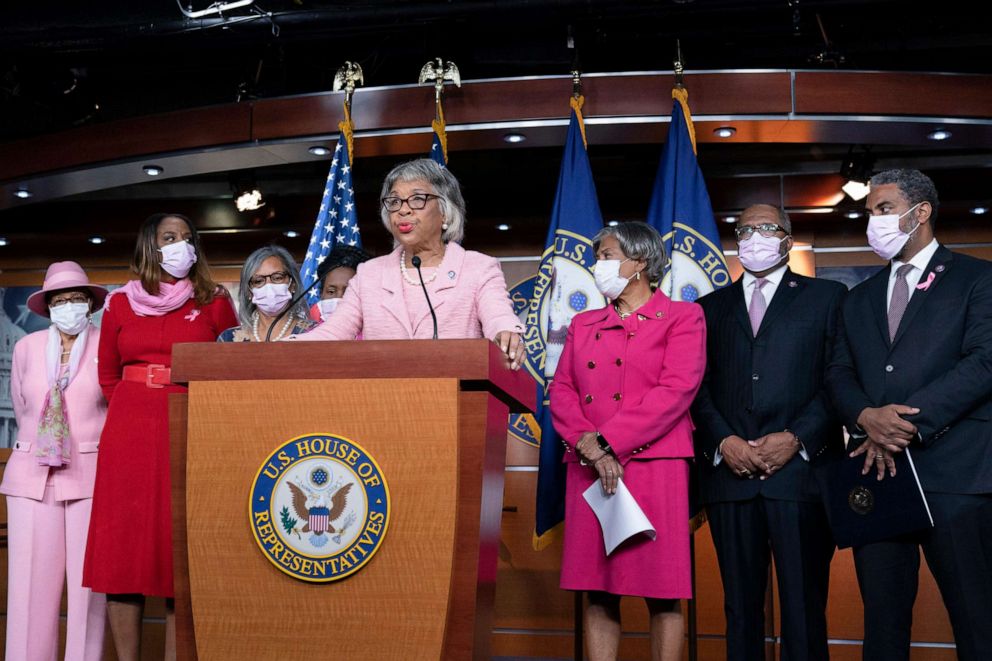
"I don't think we're in a position to keep kicking the can down the road," Beatty said. "You know, infrastructure is very important, and we need to make sure that we meet the deadline that is imminent."
The White House was hoping Biden would be able to tout the sweeping infrastructure package at the COP26 climate summit and G-20 summit this weekend.
According to an analysis by the pro-wealth-tax Americans for Tax Fairness and the Institute for Policy Studies Program on Inequality, billionaires in the U.S. have seen their collected wealth surge 70% since the start of the COVID-19 pandemic to more than $5 trillion -- a gain equal in size to Biden's spending plans over 10 years, The Associated Press reported.
The president did not campaign on a wealth tax but vowed no one earning less than $400,000 would pay more in taxes in his administration.
ABC News' Sarah Donaldson contributed to this report.




